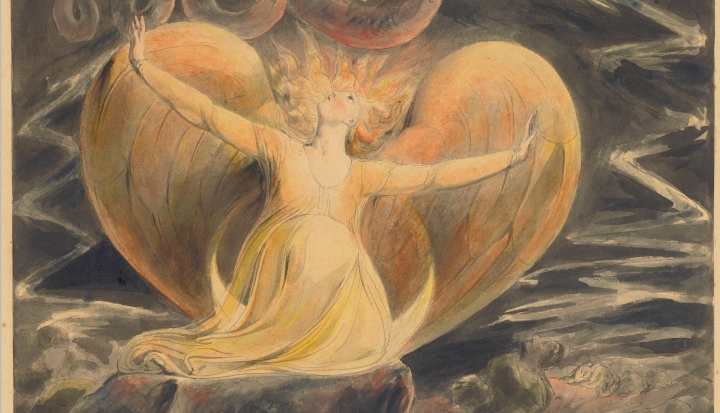Today marks the Solemnity of the Assumption of Mary, and so I found myself leaving work for an hour to go to mass. It was at a church that I don't usually attend, which is fine, with a bunch of people I don't usually worship with, which is awkward sometimes, but actually an opportunity that I enjoy occasionally.
It was also the rarest of occasions for a parent of young children – the opportunity to concentrate on the act of worship, instead of trying to keep the kids quiet and attentive.
The readings for the mass came from Revelation 12:1 about the Woman clothed with the sun. "A great portent appeared in heaven: a woman clothed with the sun, with the moon under her feet, and on her head a crown of twelve stars. She was pregnant and was crying out in birth pangs, in the agony of giving birth."
The Gospel reading, then, was the Magnificat from Luke 1:39-56. In this passage, a pregnant Mary visits a pregnant Elizabeth, and the child in Elizabeth's womb leaps. What follows is the song of a prophet from Mary: "He has brought down the powerful from their thrones, and lifted up the lowly; he has filled the hungry with good things, and sent the rich away empty."
There were powerful words coming from the readings for the day, and I was excited to hear what the priest might have to say in the homily. Then he got up and a he told an anecdote about his mother. It's not particularly important what the anecdote was, but it was the equivalent of stories that many of us have heard before: a sweet, nostalgia-laced sentiment that sounded more like June Cleaver than the mother of God. At one point he mentioned that Mary spent her life "caring for Jesus and Joseph." He told the people gathered that we could honor Mary by doing little kind things for one another. The priest never once even tried to tie in a message with the readings.
Recently, on a flight back from Brazil, Pope Francis granted an interview to a group of journalists on the plane with him. He's gotten lots of attention for the remarks that he made about gay priests, when he said, "Who am I to judge?" But he also made some brief remarks about women. He said that the "door had closed" on the possibility of women becoming priests, but went on to say that we do need a deeper theology of women.
It is hardly obvious what Pope Francis meant by that statement. There has been some speculation. Regardless of what he meant, however, I do have a suggestion both for the leadership in the church and for those of us sitting in the pews. If we want a deeper and more robust theology of women, we can start with Mary.
Mary is mentioned very little in scripture, but where she is mentioned, she is painted as quite a force to be reckoned with. In the Magnificat, she pulls no punches: "he has filled the hungry with good things, and sent the rich away empty."
In Revelation 12:1, the woman clothed with the sun is sometimes thought to represent Mary. Other times, she is thought to represent the church or Israel. But when she is thought to be Mary, a tradition follows from that in which Mary is a leader in the battle between good and evil. Mary stands with her son leading the army of angels against Satan's army.
This is not June Cleaver.
The message of Mary is not the submission of a doting wife and mother. The message of Mary is instead that of a prophet: the lowly made strong; the hungry fed; the powerful brought down; the proud scattered. She shows us the power that comes from the divine. This is a woman to look up to.
Mary is a mother, yes. But she, in her humanity and in her relationship to the divine, is a robust and powerful figure. We need not reduce her to sentimental anecdotes in order to be drawn to her or to draw strength and faith and support from her. If we want to have a more robust theology of women, we might start by embracing the very robust and strong tradition that already exists in the church surrounding Mary.
Image: The great red dragon and the woman clothed with the sun, William Blake [Public domain], via Wikimedia Commons








